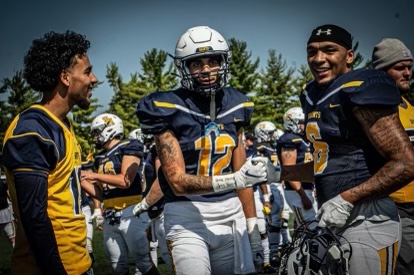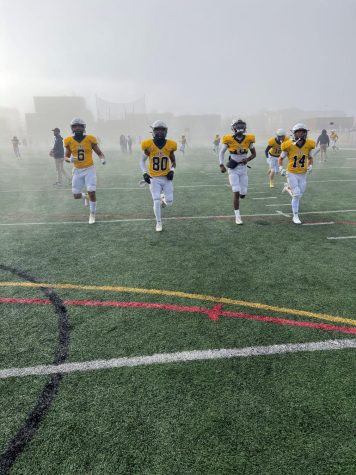COLUMN: Don’t Forget About Flint

As many of you know, Flint has been through a lot the past couple of years: poverty, violence and the water crisis.
At first, the media was covering the Flint story and making sure volunteers and resources were being sent to Flint. As the year has gone on, there has been less coverage but still a huge problem. There are still families that need to buy bottled water every day to drink.
According to Click on Detroit, “Michigan State University Extension has released a list of resources related to fighting lead with nutrition. …Convoy of Hope has procured, distributed and donated more than 300 truckloads of bottled water to the city. … The Flint Child Health & Development Fund is focused on the long-term medical and educational needs of children affected by the water crisis…”
All of these organizations are still donating and providing services, but what about the people responsible for this? What about the families who have children who may have cognitive disorder or other consequences from the lead in the water? Many researchers have been working on it to make sure that children are being monitored and on the Michigan Government website there is information about testing sites, water distribution sites, and testing results of the water.
The pipes of Flint are slowly being replaced.
According to The Detroit News, “Lansing’s public utility…estimates that the 32 crews working regular full-time hours could replace Flint’s water service lines containing toxic lead metal within a year.”
This brings hope to the people of Flint as everyone patiently waits. Around March 2017, all pipes should be replaced, according to city officials. “Should” being the key word. This does not come without a huge economic cost. The U.S. Environmental Protection Agency has estimated the cost will be between $50 million and $80 million.
I was in Flint for our fall break. I realized that we tend to victimize the people of Flint. Yes, what they are going through it horrible. But if you ever get the chance to go over and serve, you will realize that they are people just like us who are living and going through a difficult time.
We need to take a step back and realize that people who are in crisis are not a disabled people. While in Flint, I was given the opportunity to visit a school and hang out with the children there. The children, staff and teachers were not helpless. These children were being pushed to become the best versions of themselves academically and socially.
I think that it is easy for us to label people who are in crisis as helpless. The truth is, we need to take a different look at those people and how we can be community with them. We are not here to save Flint; we are here to be a resource to Flint.









